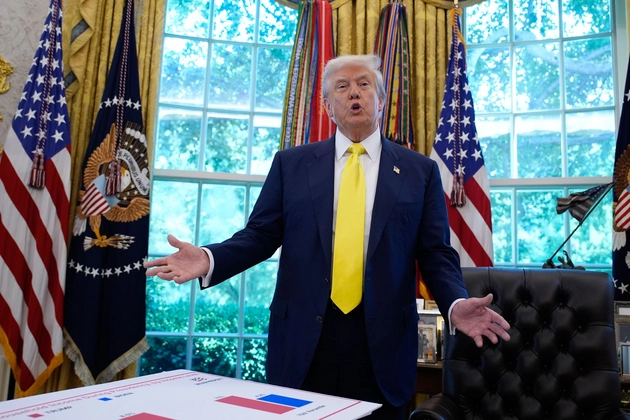Community-Driven Bid to Transform TikTok Gains Momentum
- Small Town American Media

- May 15, 2024
- 3 min read
A tech critic is planning to bid for TikTok, the massive Chinese-owned social media app currently under US government pressure to sell.

Frank McCourt, the executive chairman of McCourt Global, a family real estate giant, and founder of the tech initiative Project Liberty, revealed in an interview with Semafor on Tuesday his intention to buy and rebuild TikTok. He envisions “a new and better version of the internet where individuals are respected and they own and control their identity and their data.”
McCourt has enlisted the investment bank Guggenheim Securities to advise him on what he calls the “people’s bid.” He plans to seek funding — TikTok could cost $100 billion — from foundations, endowments, pension funds, and broad-based public support.
“We want all the capital to be values-aligned around a new and better version of the internet, where individuals are respected and they own and control their identity and their data,” McCourt emphasized.
If successful in assembling an investor group, McCourt will likely face fierce competition from major American companies eager to acquire TikTok’s extensive advertising business and user base. Donald Trump’s 2020 attempt to force a sale saw interest from Microsoft and a consortium including Oracle and Walmart. Former Treasury Secretary Steven Mnuchin, recently involved in rescuing a New York bank, has also shown interest in TikTok.
BACKGROUND
TikTok’s Chinese owner, ByteDance, is currently fighting new legislation in court that would force it to either sell the app or face shutdown. If ByteDance loses in court and opts for a sale, a crucial question will be whether the deal includes TikTok’s algorithm, which powers its ability to serve users videos tailored to their interests. Without it, TikTok might be worth far less to any buyer.
Estimates of TikTok's current value hover around $100 billion, with reported revenues of about $16 billion in 2023.
McCourt proposes transferring key elements of TikTok to a technical architecture developed by Project Liberty, which he founded. Users’ accounts would be migrated to software compliant with the project’s Decentralized Social Networking Protocol, giving them more control over their digital identities and personal data. Creators would control their own videos and have the option of monetizing them elsewhere. Users — McCourt prefers the term “people” — would have explicit control over what videos they see and how much data they share.
McCourt is arriving with a deep critique of the platform he aims to buy and other similar US-owned social media giants.
Project Liberty’s bid may also prompt questions about the terms under which TikTok could be sold and how American social media companies operate. McCourt is one of a few leading voices advocating for a very different vision of social media. While proposals vary, most share key features, such as the possibility of users’ identities, their relationships, and the content they produce functioning across different platforms rather than being confined to one.
The shift to Project Liberty’s open-source protocol would also move “the patient out of a dark cave into the hospital where you can have lights on the problem,” according to Braxton Woodham, who leads the project’s software group, Labs.
McCourt may need to convince investors that this shift won’t jeopardize TikTok’s business. However, he has the support of prominent figures, including internet pioneer Tim Berners-Lee, who stated that a remade TikTok “will embrace the critical values of privacy, data sovereignty, and user mental health.”
WORTHY MENTIONS
McCourt outlined his approach to tech in his recent book, Our Biggest Fight, excerpted in Fast Company: “Like poor, powerless subjects of monarchs and aristocrats, we are serfs, subjugated by a small group of companies that have exploited a feudal internet architecture.”
TikTok creators are leading the federal lawsuit to stop the ban.
TikTok isn’t that different from other social media apps, wrote Kyle Chayka in The New Yorker: “If the core concerns are digital-data surveillance and the targeting of individual users in ways that can manipulate or endanger them, then we have plenty of domestic threats to face first.”
.png)


